By far the largest and most colourful Durbar in Africa now takes place in Kano, northern Nigeria. Upwards of 1,500 Hausa horsemen in brilliant robes and indigo turbans gather from all corners of the State twice a year in a spectacular parade. Their horses are equally imposing, draped in ornate ceremonial regalia.
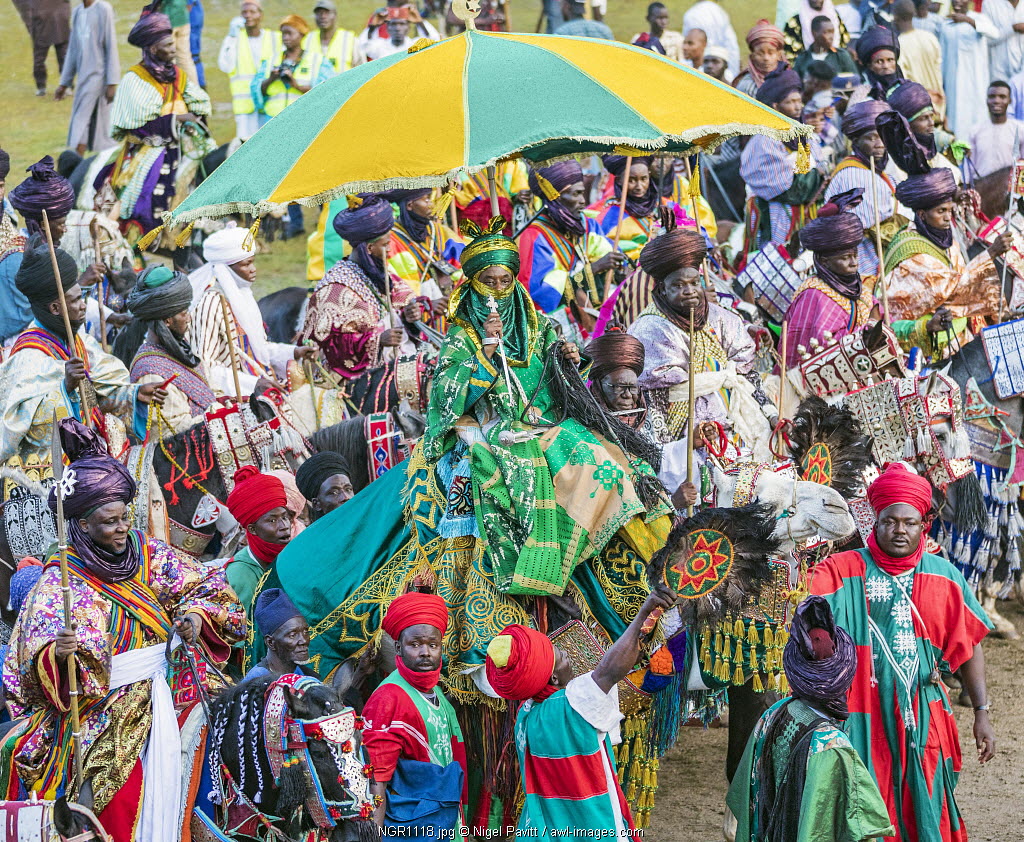
The three-day event is a truly magnificent extravaganza. Apart from its historical and cultural importance, it also serves as a catalyst to foster peace and unify the people and their leader, the Emir of Kano. He is the traditional religious head, and years ago the ruler, of more than 12 million Hausa Muslims. The present Emir, HRH Muhammad Sanusi II, is the 14th Emir of Kano from his particular dynasty.
The procession in the late afternoon of the second day is a highlight. Every group of splendidly costumed horsemen is led by a person of royal lineage or a district or village head. The men of royal lineage can easily be identified by the ‘ears’ of material sticking out from the tops of their turbans. They proudly parade past the assembled dignitaries in an anti-clockwise direction amidst singing, shouting and drumming.
The arrival of the Emir towards the end of the procession is announced by a fanfare sounded on long trumpets. The Emir, resplendent in fine robes, is mounted on a white camel accompanied by an entourage of palace guards. A servant holds up a large parasol to shade him from the sun while two others walk either side of him holding circular ostrich-feather fans. The royal drummers, also mounted on camels, follow close behind. Horsemen then gallop up to the Emir to demonstrate their riding skills and pay him their respects. It is the climax to a glorious day of tradition and pageantry.
To see all of Nigel’s images from his recent trip click the link http://www.awl-images.com/search?s=pavitt+and+Nigeria

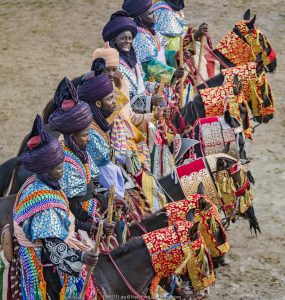
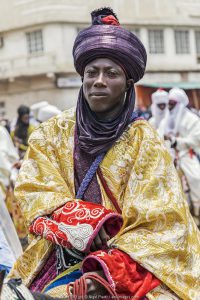
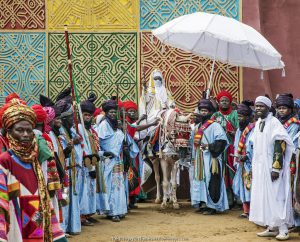
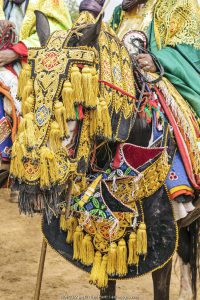
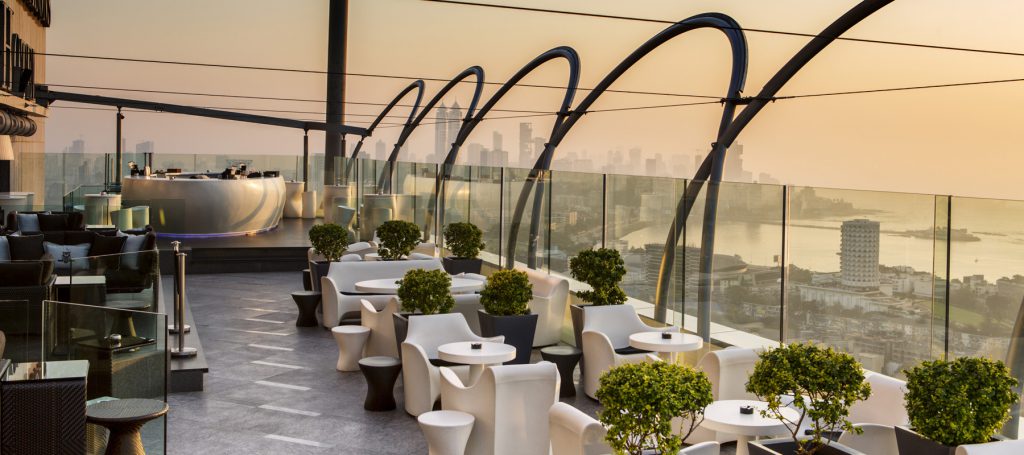
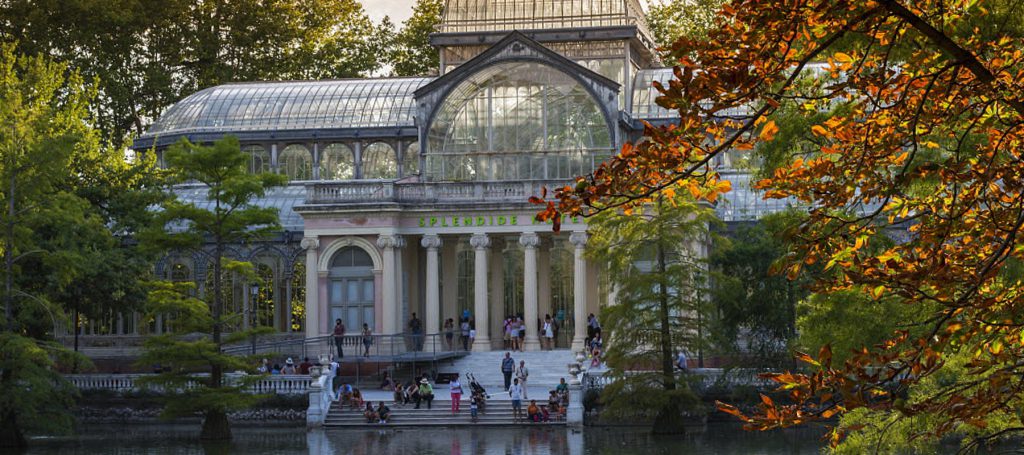
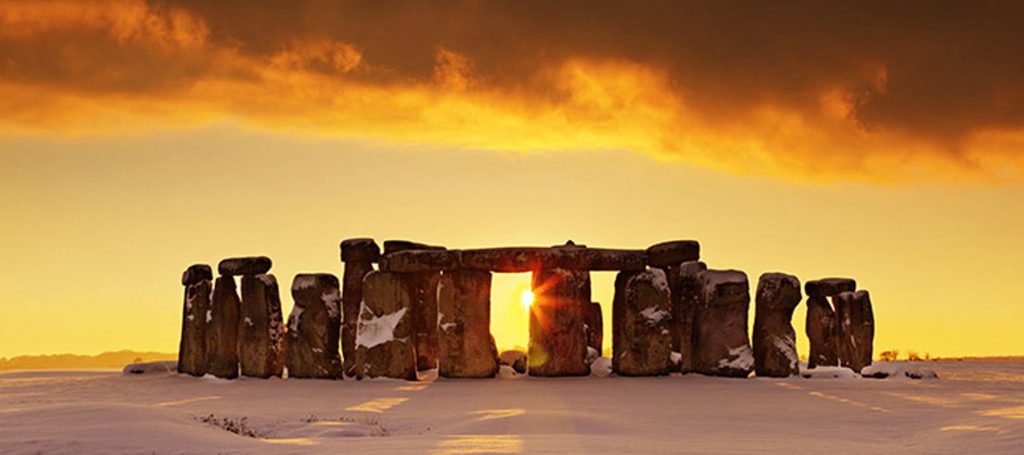
A very big thank you Nigel for taking the time and coming to Northern Nigeria with an open mind. Your pictures shows the rich culture of the Hausa-Fulani people. A lot of people outside Nigeria don’t know this culture and people exist, they only see Lagos people and their way of life. The Northern tradition goes back thousand years and is still alive today. It shows how much the Hausa-Fulani appreciate and celebrate their culture. No other region in the country does it at this celebrated cultural level. You are quite right, apart from the language Hausa, one of the most widely spoken language in Africa, the culture is a unifier among the people. The pictures you have taken and posted will indeed act as a positive image to the northern region and people. It is unfortunate our southern dominated media does not project the same positive image of the North. In an era of social media your pictures will attract would be tourist looking to visit Nigeria to come to the North. Having positive media images like the one you posted, economic spillovers will also follow. It will lift people out of poverty. Keep up the good work.